Understanding number sequences Worksheets for Ages 3-7
8 filtered results
-
From - To
Unlock the joy of learning with our "Understanding Number Sequences Worksheets for Ages 3-7." Designed specifically for young minds, these engaging activities help children grasp essential counting skills, develop numerical fluency, and recognize patterns. Our printable worksheets offer a diverse array of exercises, from simple counting to more complex sequences, ensuring foundational math education. Tailored to enhance logical thinking and problem-solving, each worksheet is crafted to make number sequencing both fun and educational. Don't miss the chance to build strong math foundations in your child with our interactive, easy-to-follow worksheets today!
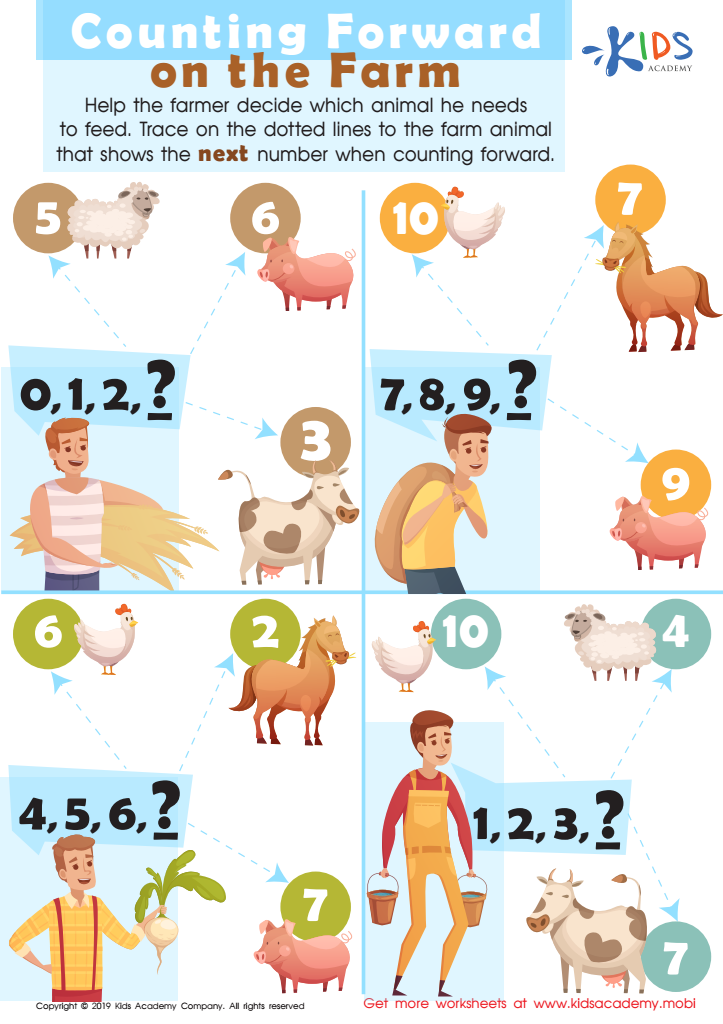

Counting Forward On the Farm Worksheet
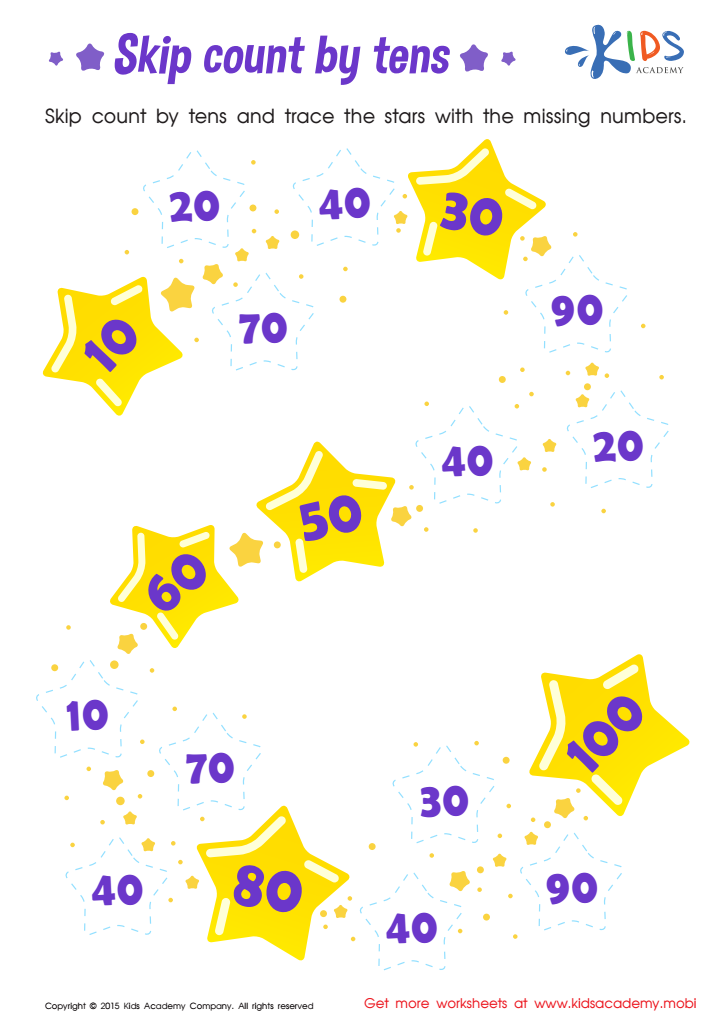

Learn dozens: Skip Count by Tens Printable
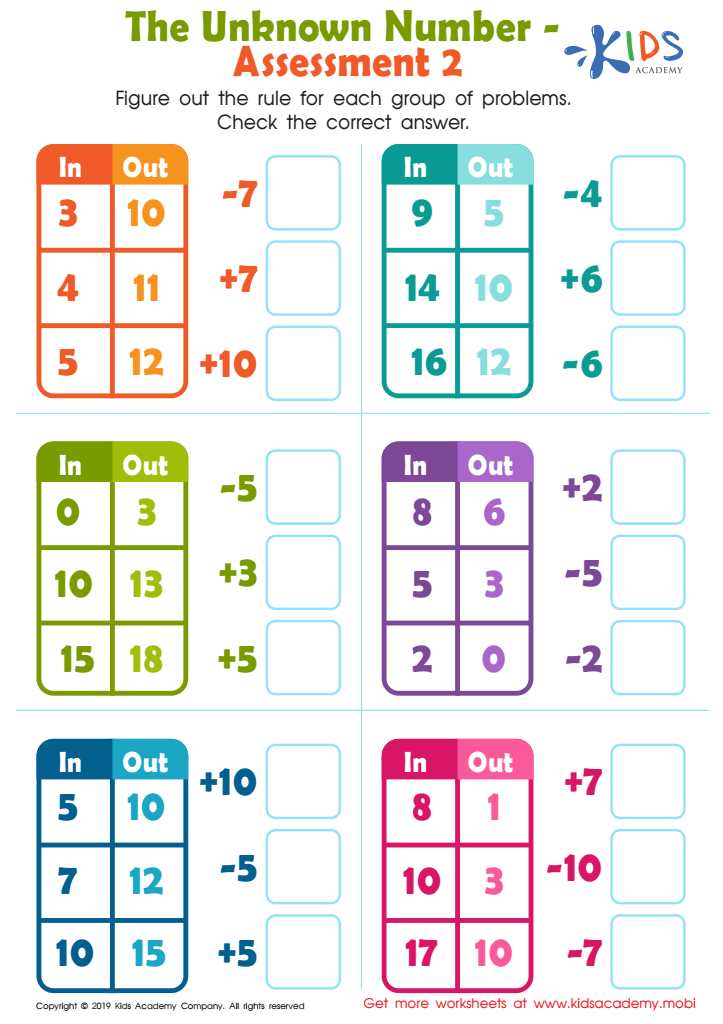

The Unknown Number - Assessment 2 Worksheet
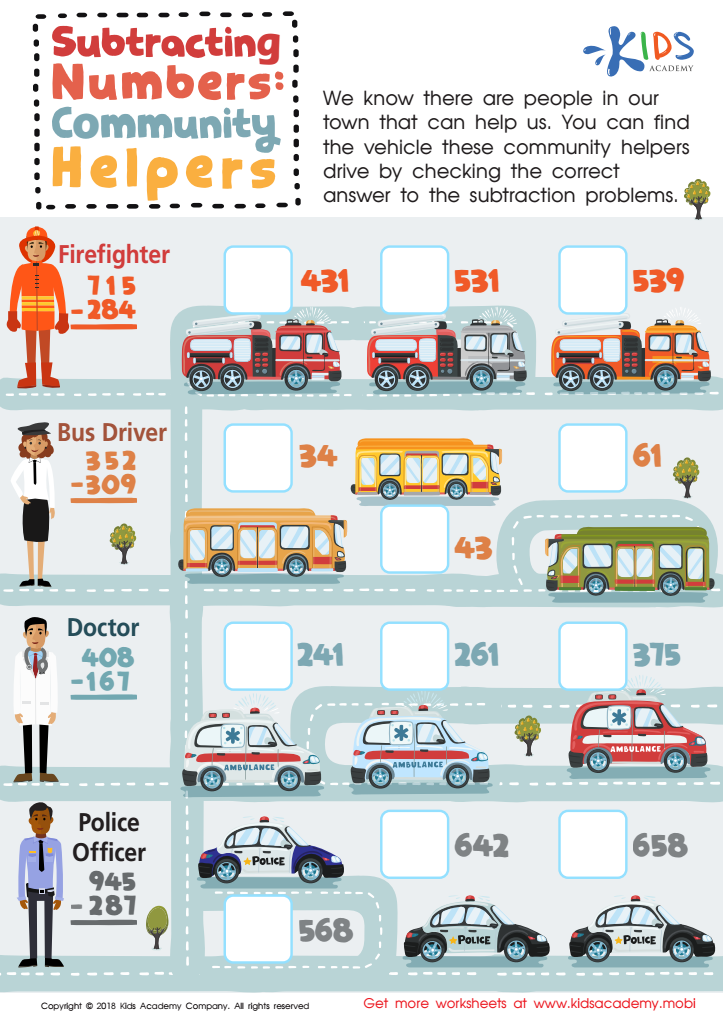

Subtracting Numbers: Community Helpers Worksheet
Understanding number sequences is critical for children aged 3 to 7 as it lays the foundation for numeracy and mathematical skills. During this formative period, children start to grasp basic concepts like counting, identifying patterns, and recognizing the logical order of numbers. By understanding these sequences, children develop their ability to predict future numbers in a given series, which is essential for more complex math concepts they'll encounter later.
From a developmental perspective, mastering number sequences aids children's cognitive abilities, enhances their memory, and encourages logical thinking. It also helps with everyday tasks such as setting the table, distributing toys, or following a schedule.
Moreover, recognizing patterns within number sequences aids in problem-solving skills and critical thinking. When children can see the link between numbers, they can apply this logic to other areas such as sorting, classifying, and comparing objects.
For parents and teachers, supporting children in mastering number sequences equips them with the analytical skills they need for academic success in all subjects. Encouraging number sequencing through games, bedtime stories, and everyday conversations creates a stimulating learning environment, making math both fun and foundational for lifelong education. Therefore, prioritizing this skill promises a strong academic start and fosters a positive attitude towards learning.
 Assign to My Students
Assign to My Students


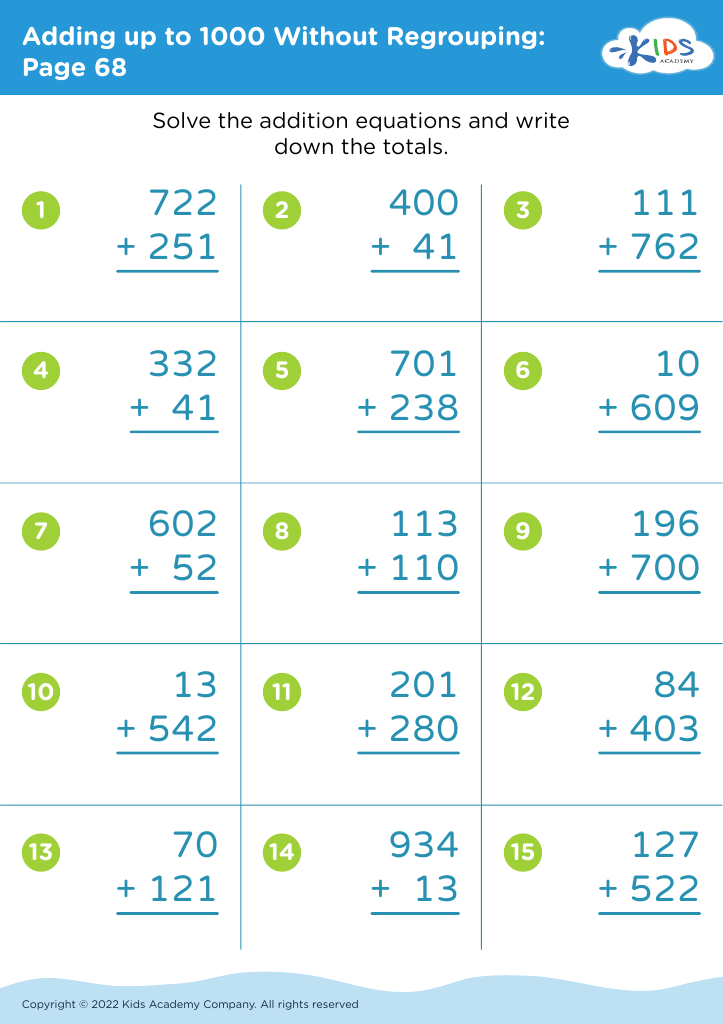


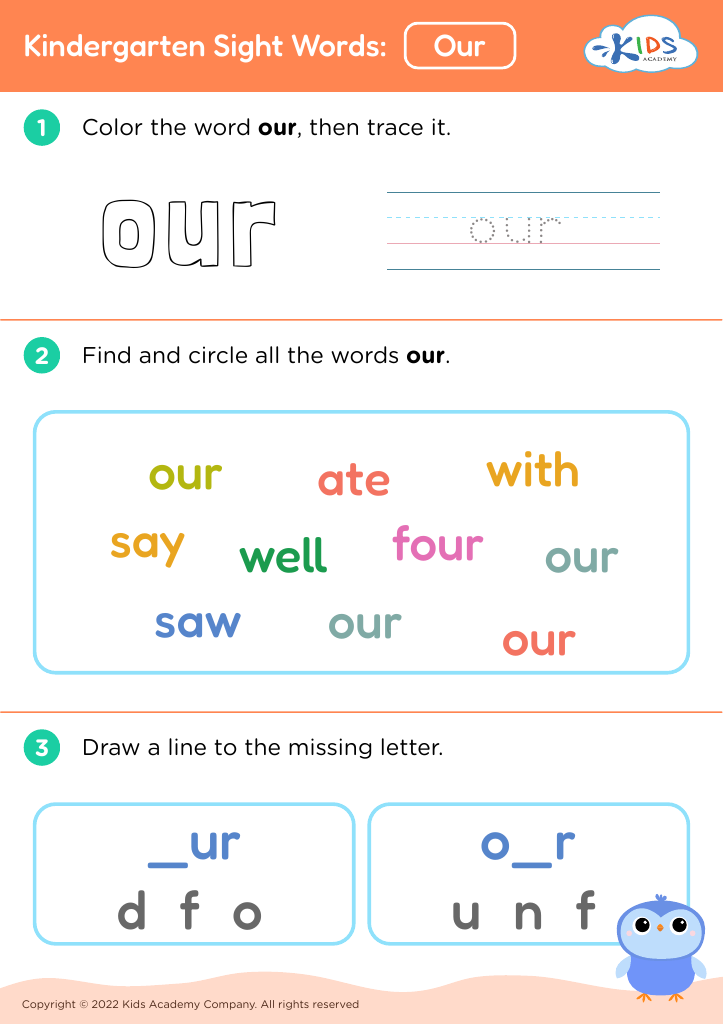






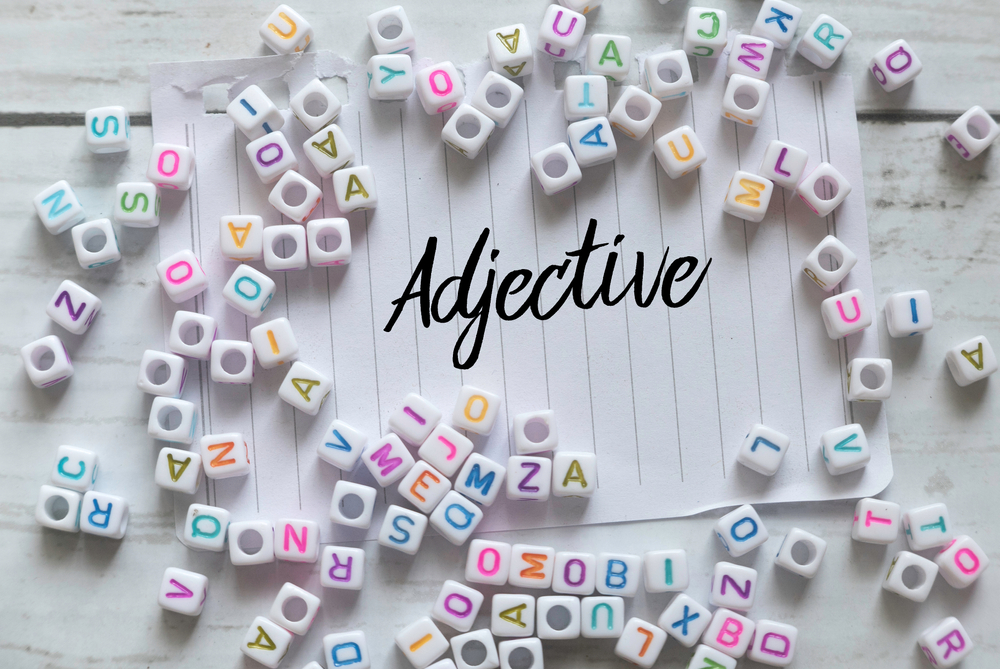
.jpg)












